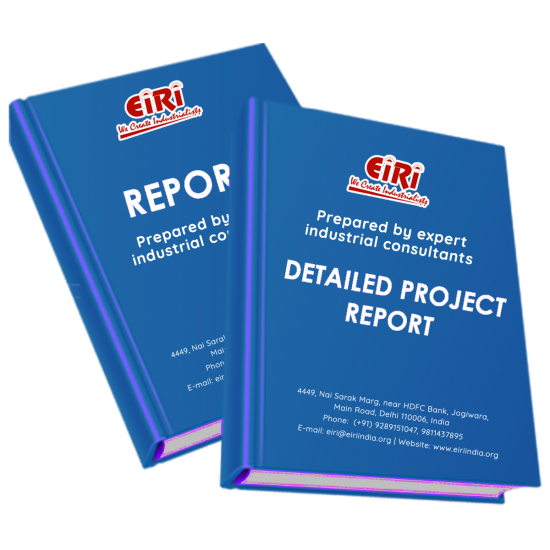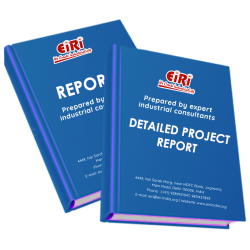Detailed Project Report on high density hard board from bagasse

- More than 40 years of experience
- Managed by expert industrial consultants
- ISO 9001-2015 Certified
- Registered under MSME, UAM No: DL01E0012000
- 24/5 Research Support
Get your quesries resolved from an industry expert. Ask your queries before report or book purchase. - Custom Research Service
Speak to the our consultant to design an exclusive study to serve your research needs. - Quality Assurance
All reports are prepared by highly qualified consultants & verified by a panel of experts. - Information Security
Your personal & confidential information is safe & secure.
HIGH DENSITY HARD BOARD FROM BAGASSE
[CODE NO.1965]
Fiberboard is a low-density insulation board used for housing, roofing, and office furnishings. Hardboard is similar to fiberboard, except that hardboard is more dense than fiberboard. Hardboard is used for applications in housing (e.g., exterior siding, garage doors, and interior door facings), furniture, store fixtures, automotive interiors, and toys. The most frequently used raw material for production of fiberboard products is wood chips which are first softened in a pressurized steam vessel (digester) and then refined or pulped into wood fibers. The fibers may then be mixed with resin, formed into mats, and pressed and/or dried to form panel products. Other materials may be added during manufacture to improve certain properties such as stiffness, hardness, finishing properties, resistance to abrasion and moisture, as well as to increase strength, durability and utility.
Hardboard/fiberboard manufacturing falls under the Standard Industrial Classification (SIC) Code 2493, for “Reconstituted Wood Products”, which also includes oriented strand board, medium density fiberboard, and particleboard. The North American Industrial Classification System (NAICS) Code for hardboard/fiberboard is 321219, for “Reconstituted Wood Product Manufacturing”.
There are three basic grades or qualities of hard board: Utility, standard and tempered or treated grade. The utility grade is lower in density, strength and other properties than the others; hence it is used where requirements and exposures are not severe. The standard grade is the quality in greatest demand for general use. The tempered or treated grade is treated with oil blends or similar compounds after pressing to make it stronger and more water resistant; it, is used where requirements are most exacting. The choice of board for a particular application is a matter of balancing costs against the requirements for use. Practice varies from area to area. For example, standard quality hardboard is sufficiently durable for nearly all interior or exterior purposes, particularly protected with a paint or other film, but tempered quality hardboard may be required in certain areas because the tempered board changes dimensions less rapidly with changes in relative humidity or upon occarional wetting. Changes in dimension may produce objectionable buckling if the hardboard is rightly confined at the edges.
COST ESTIMATION
Plant capacity 50.00 CUBIC MTR/day
Land & Building (1.5 Acres) Rs. 2.69 Cr
Plant & Machinery Rs. 2.50 Cr
W.C. for 1 Month Rs. 1.71 Cr
Total Capital Investment Rs. 7.16 Cr
Rate of Return 24%
Break Even Point 67%
INTRODUCTION
DEFINITION AND CLASSIFICATION OF FIBRE BOARD
DIMENSION AND CHEMICAL COMPOSITION OF LIGNOCELLULOSIC FIBRES
PROPERTIES
USES AND APPLICATIONS
MARKET SURVEY
WOOD, PLYWOOD AND PANEL INDUSTRY - US$157.97 BILLION GLOBAL OPPORTUNITY
EXPORTS OF PLYWOOD, WOOD AND PANEL PRODUCTS FROM INDIA
EXPORT OF HARD BOARD/FIBER BOARD FROM INDIA
PRESENT MANUFACTURERS OF HARD BOARDS
DETAILS OF ADHESIVE AND BONDING
PROCESS DESCRIPTION FOR HARD BOARD MANUFACTURING
B.I.S SPECIFICATIONS
MANUFACTURING PROCESS OF HIGH DENSITY HARD BOARD FROM BAGASSE
PROCESS DETAILS
SANDING AND FINISHING
PROCESS FLOW DIAGRAM
SEQUENCES IN FIBER BOARD MANUFACTURING
DIFFERENT PROCESS TO MANUFACTURE FIBRE BOARD
MANUFACTURE OF MEDIUM DENSITY FIBER BOARD (MDF)/HIGH DENSITY FIBER BOARD (HDF)
EMISSION AND CONTROLS IN HARD BOARD/FIBRE BOARD MILLS
PLANT LAYOUT
PRINCIPLES OF PLANT LAYOUT
PLANT LOCATION FACTORS
EXPLANATION OF TERMS USED IN THE PROJECT REPORT
SUPPLIERS OF PLANT AND MACHINERIES (IMPORTED)
SUPPLIERS OF PLANT AND MACHINERIES (INDIAN)
SUPPLIERS OF RAW MATERIALS
APPENDIX – A :
1. COST OF PLANT ECONOMICS
2. LAND & BUILDING
3. PLANT AND MACHINERY
4. FIXED CAPITAL INVESTMENT
5. RAW MATERIAL
6. SALARY AND WAGES
7. UTILITIES AND OVERHEADS
8. TOTAL WORKING CAPITAL
9. COST OF PRODUCTION
10. PROFITABILITY ANALYSIS
11. BREAK EVEN POINT
12. RESOURCES OF FINANCE
13. INTEREST CHART
14. DEPRECIATION CHART
15. CASH FLOW STATEMENT
16. PROJECTED BALANCE SHEET
How to Make Project Report?
Detailed Project Report (DPR) includes Present Market Position and Expected Future Demand, Technology, Manufacturing Process, Investment Opportunity, Plant Economics and Project Financials. comprehensive analysis from industry covering detailed reporting and evaluates the position of the industry by providing insights to the SWOT analysis of the industry.
Each report include Plant Capacity, requirement of Land & Building, Plant & Machinery, Flow Sheet Diagram, Raw Materials detail with suppliers list, Total Capital Investment along with detailed calculation on Rate of Return, Break-Even Analysis and Profitability Analysis. The report also provides a birds eye view of the global industry with details on projected market size and then progresses to evaluate the industry in detail.
We can prepare detailed project report on any industry as per your requirement.
We can also modify the project capacity and project cost as per your requirement. If you are planning to start a business, contact us today.
Detailed Project Report (DPR) gives you access to decisive data such as:
- Market growth drivers
- Factors limiting market growth
- Current market trends
- Market structure
- Key highlights
Overview of key market forces propelling and restraining market growth:
- Up-to-date analyses of market trends and technological improvements
- Pin-point analyses of market competition dynamics to offer you a competitive edge major competitors
- An array of graphics, BEP analysis of major industry segments
- Detailed analyses of industry trends
- A well-defined technological growth with an impact-analysis
- A clear understanding of the competitive landscape and key product segments
Need Customized Project Report?
- Ask for FREE project related details with our consultant/industry expert.
- Share your specific research requirements for customized project report.
- Request for due diligence and consumer centric studies.
- Still haven't found what you're looking for? Speak to our Custom Research Team
About Engineers India Research Institute:
Note: We can also prepare project report on any subject based on your requirement and country. If you need, we can modify the project capacity and project cost based on your requirement.
Our Clients

Our Approach
- Our research reports comprehensively cover Indian markets (can be modified as per your country), present investigation, standpoint and gauge for a time of five years*.
- The market conjectures are produced on the premise of optional research and are cross-accepted through associations with the business players
- We use dependable wellsprings of data and databases. What's more, data from such sources is handled by us and incorporated into the report
Why buy EIRI reports?
- Our project reports include detailed analysis that help to get industry Present Market Position and Expected Future Demand.
- Offer real analysis driving variables for the business and most recent business sector patterns in the business
- This report comprehends the present status of the business by clarifying a complete SWOT examination and investigation of the interest supply circumstance
- Report gives investigation and top to bottom money related correlation of real players/competitors
- The report gives gauges of key parameters which foresees the business execution





















![bagasse tableware [plates, glass, bowl, food container etc.] bagasse tableware [plates, glass, bowl, food container etc.]](https://www.eiriindia.org/image/cache/catalog/report/detailed-project-report-cma-data-250x250.png)
